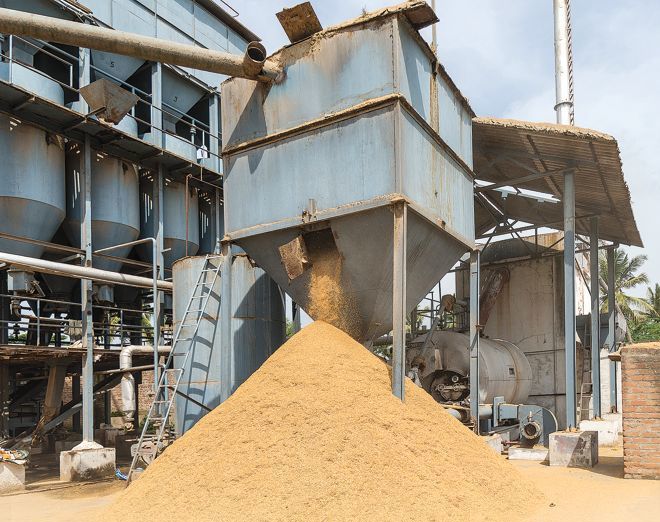Senate, House nearing deal on rice tariff law

House Speaker Martin Romualdez announced significant progress in discussions with Senate President Francis Escudero regarding amendments to the Rice Tariffication Law (RTL). The proposed changes, outlined in House Bill 10381, aim to empower the National Food Authority (NFA) in managing rice quality and supply, including the ability to declare food security emergencies. The bill also seeks to extend the Rice Competitiveness Enhancement Fund and increase its annual allocation to P15 billion to support local farmers and stabilize rice prices.
HOUSE Speaker Martin Romualdez said the House of Representatives and the Senate were nearing an agreement on changes to the Rice Tarrification Law (RTL).
Romualdez issued the statement after meeting with Senate President Francis Escudero last Thursday, their first official discussion since the latter became Senate chief in May.
“Our discussion is ongoing, and it seems that both Houses are moving closer to an agreement,” Romualdez told reporters on Friday on the sidelines of the Agriculture Convergence Event in Tiaong, Quezon, wherein he was guest of honor and keynote speaker.
On May 21, 2024, House Bill 10381, which seeks to amend the RTL, hurdled third and final reading, with about 230 House lawmakers voting for its passage, three against, and one abstained.
Under the bill, the National Food Authority (NFA) is empowered to require all grain warehouses to be registered, and inspect warehouses “to ensure compliance with standards related to rice quality and supply.”
Also, the bill provides the conditions to declare a food security emergency — specifically rice supply shortage, “sustained increase in the price of rice,” or “extraordinary increase in the price of rice.”
In these cases, the bill allows the NFA to use inventory primarily meant for buffer stocking, supply places where extraordinary price increases or acute supply shortages occurred, and replenish the inventory used from available local sources. It also allows the NFA to resort to importation if there are no available local sources, upon written concurrence by the secretary of the Department of Agriculture (DA), and to maintain a buffer fund up to half of the allocation meant for calamities “to be availed of and utilized only to replace the volume of rice inventory utilized for the purpose.”
Moreover, the bill states that the NFA could source rice buffer stocks from farmers’ organizations/associations/cooperatives in connection with its mandate to maintain sufficient rice buffer stocks.
It further states that the NFA shall be authorized to buy locally milled rice as needed to fulfill its mandate.
Moreover, the bill states that the NFA could source rice buffer stocks from farmers’ organizations/associations/cooperatives in connection with its mandate to maintain sufficient rice buffer stocks.
It further states that the NFA shall be authorized to buy locally milled rice as needed to fulfill its mandate.
“As a final recourse, once all domestic sources have been exhausted, the NFA shall be granted the authority to directly import rice, subject to the explicit” written concurrence and authorization from the DA secretary, it added.
This authority to directly import rice “is to be exercised solely in circumstances where domestic supply deficits necessitate such imports to stabilize the national rice supply and maintain the optimal buffer stock,” the bill states.
The bill also seeks to extend the Rice Competitiveness Enhancement Fund for another six years and to increase its annual appropriation to P15 billion from P10 billion with changes in the fund’s distribution.
Under the bill, the president, “through the recommendation of the [DA chief], after the recommendation of the” program steering committee, is allowed to reallocate the P15 billion “within the core components” if needed.
“Likewise, the excess tariff revenues may be reallocated to the core components and the other programs to be funded,” the bill states.
A press release from the House speaker’s office states that the “discussion on RTL amendments was a focal point in the June 13 meeting of Romualdez and Escudero at the Aguado Residence in Malacañang.
“Amending the Rice Tariffication Law is a crucial step towards ensuring food security and economic stability for our farmers,” Romualdez told reporters after the meeting.
“We are committed to making quality rice affordable for all Filipinos while boosting the livelihoods of our local farmers,” he had added.
Source Link: https://www.manilatimes.net/2024/06/17/news/national/senate-house-nearing-deal-on-rice-tariff-law/1951827














